Supermarket giant Tesco has posted a massive £6.4bn loss, the worst in its 96-year history, after shoppers deserted Britain’s biggest retailer, forcing it to write down the value of its stores.
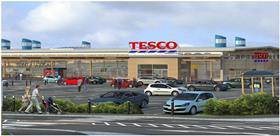
Hurt by an accounting scandal and sliding sales due to pressure from discounters and a brutal price war, the supermarket wrote down the value of its 3,000 stores by £4.7bn.
Tesco’s stores have declined in value as its vast out of town estate has fallen out of favour with consumers, who now shop online and use convenience stores to top up as necessary rather than doing a single weekly shop.
Tesco is currently in the process of closing 43 stores and cancelling 49 development projects purchased at a much higher rate than their current value.
The statutory loss, which also includes restructuring charges and stock writedowns, is one of the largest in UK corporate history and the largest by any British retailer.
Dave Lewis, chief executive of Tesco said: “The market is still challenging and we are not expecting any let-up in the months ahead. When you add to this the fundamental changes we are making to our business and our offer, it is likely to lead to an increased level of volatility in short-term performance.
“Our clear priority - and the one that will deliver sustainable value for our shareholders - is to improve consistently for customers. The changes we have made and will continue to make put us in a stronger position to do this.”
Tesco’s trading profit for the year to the end of February was £1.4bn, in line with company guidance but less than half of the £3.3bn made the year before and a third straight year of decline.
Britain’s biggest retailer also revealed it had net debt of £8.5bn and the pension deficit grew to £3.9bn. It has agreed to pay £270m a year into the scheme.
Tesco’s property writedown follows similar moves by rivals Sainsbury’s and Morrisons and reflects the deterioration in UK grocery market conditions in recent years. It is on top of about £4bn of charges Tesco has taken over the last three years.
The group said trading conditions had also remained tough overseas where trading profit in Asia and Europe fell 15.3% and 31.1% respectively.
In terms of blue-chip company losses, Tesco’s £6.4bn pre-tax loss was dwarfed by Vodafone’s £14.9bn loss in 2006, and RBS’s £24bn loss in 2009 which became a record for a UK company.
Compared to it’s supermarket rivals, no other retailer has come close to such losses. WM Morrison reported a £792m loss for 2014, after its own set of property writedowns exacerbated the effects of poor trading.
























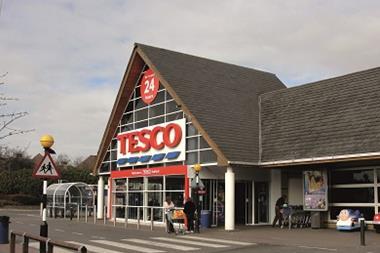
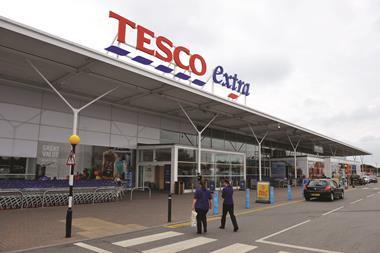
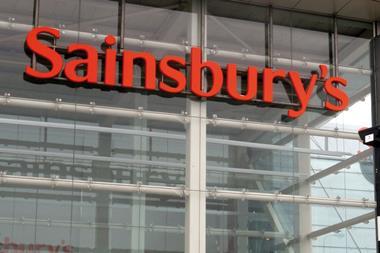


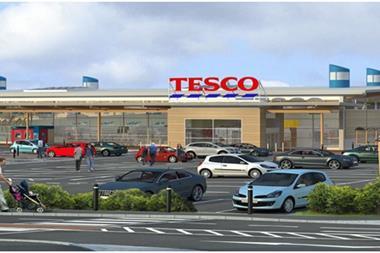
No comments yet